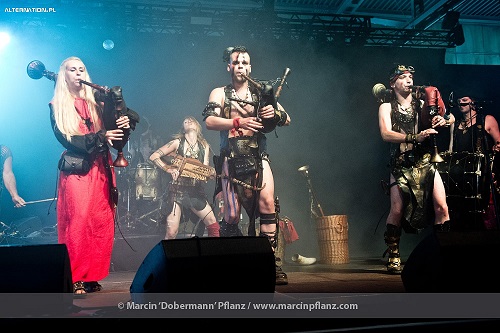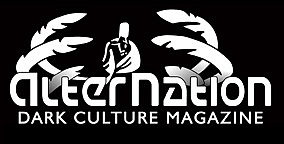Folk rock
Folk rock is a musical genre, combining elements of folk music and rock music.
In its earliest and narrowest sense, the term referred to a genre that arose in the United States and Canada around the mid-1960s. The sound was epitomized by tight vocal harmonies and a relatively "clean" (effects- and distortion-free) approach to electric instruments epitomized by the jangly sound of The Byrds' guitarist Roger McGuinn. The repertoire was drawn in part from folk sources, but even more from folk-influenced singer-songwriters such as Bob Dylan. Roger McGuinn of the Byrds has also stated The Beatles inspired him to mix folk with rock music. All Music Guide also credits the Beatles for fusing folk with rock in 1964.
This original folk rock directly led to the distinct, eclectic style of electric folk (a.k.a. British folk rock) pioneered in the late 1960s by The Pentangle and Fairport Convention. Starting from a North-American style folk rock, Pentangle, Fairport and other related bands deliberately incorporated elements of traditional British folk music. At the same time, in Brittany, Alan Stivell began to mix his Breton roots with Irish and Scottish roots and with rock music. Very shortly afterwards, Fairport bassist Ashley Hutchings formed Steeleye Span in collaboration with traditionalist folk musicians who wished to incorporate electrical amplification, and later overt rock elements, into their music.
This, in turn, spawned several other variants: the self-consciously English folk rock of the Albion Band and some of Ronnie Lane's solo work, and the more prolific current of Celtic rock, incorporating traditional music of Ireland, Scotland, Cornwall, and Brittany. Through at least the first half of the 1970s, Celtic rock held close to folk roots, with its repertoire drawing heavily on traditional Celtic fiddle and harp tunes and even traditional vocal styles, but making use of rock band levels of amplification and percussion.
In a broader sense, folk rock includes later similarly-inspired musical genres and movements in the English-speaking world (and its Celtic fringes) and, to a lesser extent, elsewhere in Europe. As with any genre, the borders are difficult to define. Folk rock may lean more toward folk or toward rock in its instrumentation, its playing and vocal style, or its choice of material; while the original genre draws on music of Europe and North America, there is no clear delineation of which folk cultures music might be included as influences. Still, the term is not usually applied to rock music rooted in the blues-based or other African American music (except as mediated through folk revivalists), nor to rock music with Cajun roots, nor to music (especially after about 1980) with non-European folk roots, which is more typically classified as world music.
Artists belong to the genre
 |
Cultus Ferox |
Country: Niemcy / Germany / Date of establishing : 2001 |
Pages:
1
1
